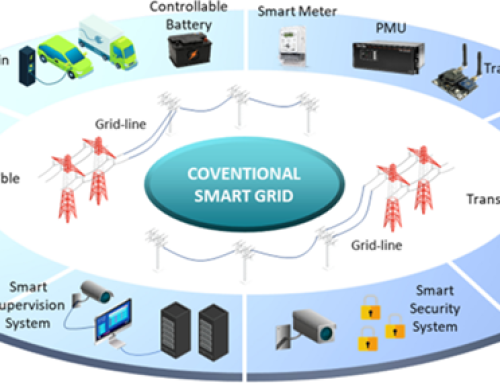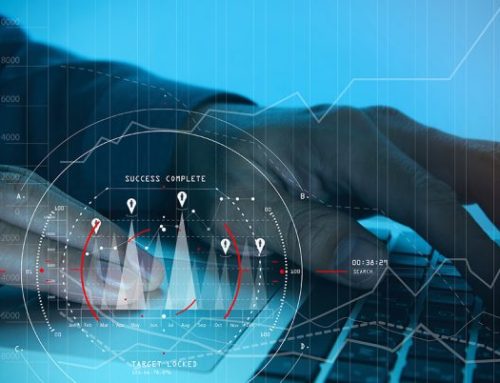Are your field teams often out of sync with your back office?
You’re not alone. Many utility companies and service-driven industries across the U.S. still rely on disconnected systems, manual entries, or outdated software. These outdated practices often slow down operations, create data silos, and lead to missed opportunities. Delayed field updates, inconsistent inventory records, and slow approval cycles only complicate matters further.
This is where a seasoned ERP Consultant steps in. When paired with solutions like Microsoft Dynamics 365 and guided by a certified Dynamics 365 Partner, your business can finally work as a single system, not a collection of disconnected tools.
Why Field Service ERP Solutions Matter More Than Ever
Utility businesses and service providers depend on fast decisions. Every service request, work order, and asset check has a direct impact on customer satisfaction and regulatory compliance.
Field Service ERP Solutions bring everything into one digital interface—from scheduling and dispatching to invoicing and inventory updates. When integrated with your CRM and project management tools, the ERP system tracks resource availability, automates job assignments, and logs updates instantly from the field.
That means no more double entry. No more waiting for end-of-day reports. Field technicians can update tasks in real-time, and managers can track status and performance instantly. The benefits are measurable. Reduced job completion time, improved resource planning, and lower overhead costs.
Now, imagine combining that with Dynamics 365 AI for Energy Optimization. You can forecast demand, allocate grid loads efficiently, and reduce energy loss, all within the same ERP dashboard.
What an ERP Consultant Actually Does
You don’t just need software. You need a strategy. That’s where the ERP Consultant comes in.
They start by understanding your existing workflows, legacy tools, and team structure. Then they design a tailored ERP roadmap to align your systems with Microsoft Dynamics 365’s capabilities. It’s not just about adding features—it’s about removing friction.
From licensing and compliance to automation rules and workflow mapping, ERP consultants bridge the gap between tech and people. They help you shift from paper-driven or siloed tools to integrated, scalable processes. They make sure every department talks to each other through one system.
The difference? Smooth deployments. Minimal disruption. Faster returns.
Comparison of Traditional Systems vs. Field Service ERP Solutions
Here’s how outdated systems stack up against modern ERP deployments:
| Criteria | Traditional Systems | Field Service ERP Solutions |
| Field Updates | Manual, delayed | Real-time, synced with a central system |
| Asset Management | Separate logs, often offline | Centralized asset tracking |
| Work Order Management | Paper-based or email-based | Automated workflows |
| Technician Scheduling | Manual or spreadsheet-based | Auto-assignments using resource availability |
| Customer Communication | Unstructured, reactive | Structured, proactive alerts and updates |
| Data Security | Varies; usually low | Role-based access and encryption |
| Reporting | Weekly/monthly, manual collation | Real-time dashboards |
By moving to Field Service ERP Solutions, utility providers can reduce operational lags, increase transparency, and make faster decisions.
Training Is Not Optional—It’s Operational
Even the best ERP platform falls flat without trained users. That’s why ERP Training is not just an afterthought. It’s part of a successful implementation strategy.
ERP consultants work closely with your teams to design training that’s specific to each department. From accounting to field service, each group learns how to use the ERP system for their role. It cuts down dependency on IT. It lowers resistance to change. And it helps your staff adopt new workflows faster.
Effective ERP Training ensures your investment pays off not just today but also in the long term.
Why Choose a Certified Dynamics 365 Partner?
The difference between success and struggle often lies in who you partner with.
A Dynamics 365 Partner brings not just licensing and deployment support, but industry-specific experience. For the electric utility sector, the requirements are very different from retail or manufacturing. You deal with load forecasting, environmental compliance, field inspections, and equipment servicing—all of which need specialized handling inside your ERP.
Working with a partner like E-365.ai, which specializes in utility business operations, you get pre-configured templates, tested automation rules, and deep integration with EMS/ADMS systems. They also understand how to plug in Dynamics 365 AI for Energy Optimization to forecast loads, optimize dispatch, and balance power generation and consumption.
It’s not about just installing software. It’s about transforming how you work.
As the U.S. ERP Software market is projected to reach $27.82 billion in 2025, organizations are beginning to invest in smarter digital systems. One area of focus is Field Service ERP Solutions — built to unify back-end operations with real-time field updates. But implementing such solutions without the right expertise often leads to half-baked rollouts, wasted money, and frustrated teams.
Final Thoughts
If you’re still managing service calls, maintenance records, and workforce tasks across multiple systems, it’s time to move forward. We help utility businesses simplify operations using Field Service ERP Solutions powered by Microsoft Dynamics 365.
Let us show you how E-365.ai, a certified Dynamics 365 Partner, can help your business run smarter. Ask us how our ERP Consultant team delivers success through real-world experience, training, and system design.
Get started now. Let us optimize your operations with the right ERP tools.






Leave A Comment